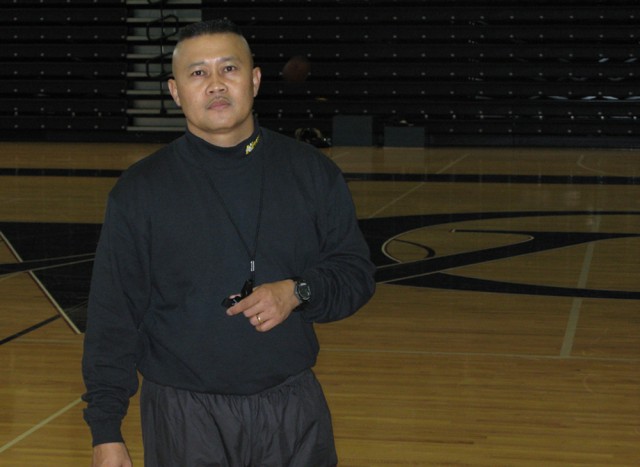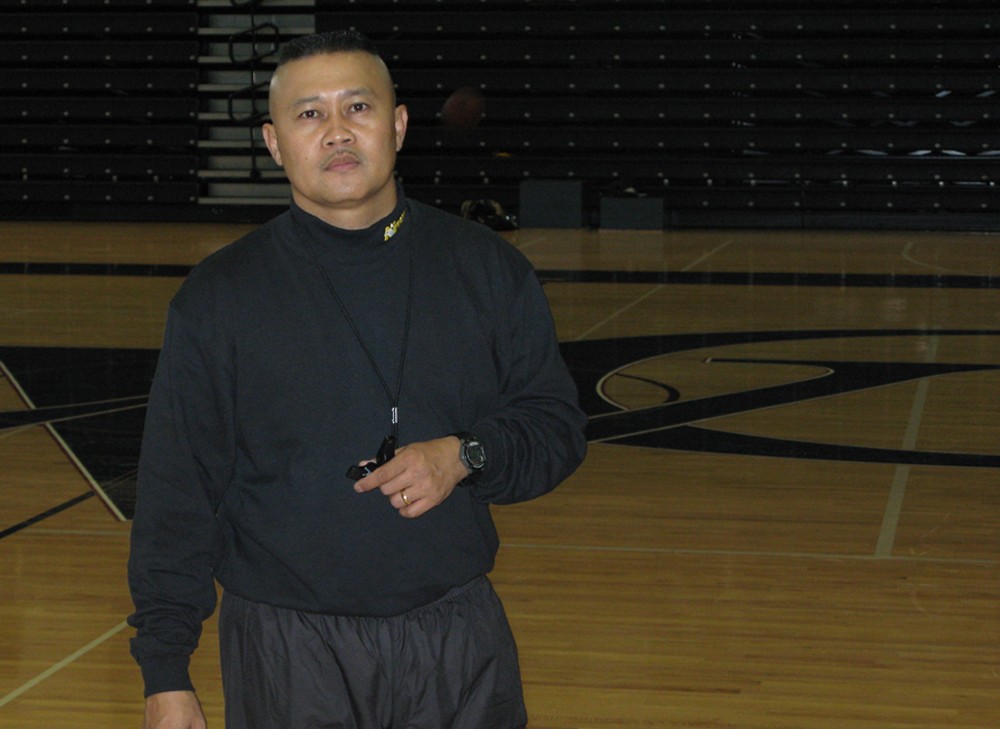1st Sgt. Romeo Satsatin
Age: 42
Current Position: First Sergeant
Current Unit: Heidelberg Dental Activity, Germany (Heidelberg, Mannheim & Stuttgart area)
Component: Active-duty Army
Current Location: U.S. Army Garrison Heidelberg
Hometown: Norfolk, Va.
Years of Service: 19
College: Norfolk State University, Norfolk, Va.
Highest Personal Achievement: Being positive role model for my children and selected as head coach for the All-Army men's basketball team
Hobbies: Volunteering with Special Olympics, coaching and teaching basketball
(Editor's Note: 1st Sgt. Romeo Satsatin has coached in the Army's Morale, Welfare and Recreation sports program throughout his military career. In his own words, he describes the similarities of serving as an Army noncommissioned officer and leading troops on the court)
"As a young Soldier, I started playing unit sports in the early 1990s at Wharton Barracks in Heilbronn, Germany.
I always looked forward to unit-level flag football and basketball seasons - especially after demanding and stressful days at work. I can still remember our first sergeant coming through the barracks encouraging Soldiers to participate, the crowds and the sound of the whistle to start each game.
On weekends, I volunteered as the medic/trainer for the post-level men's basketball team, and quickly became the assistant coach. Several years and hundreds of games later, I have been very fortunate to have been selected as the 2007 All-Army men's basketball team assistant coach and head coach for the 2008 squad.
Participation in unit-level sports has played an important part in the success of my Army career, including my time as a noncommissioned officer. Plus I now realize how much sports relates to the military mission.
I used my coaching opportunities as a young Soldier to hone my troop-leading skills. I became more confident when addressing peers, subordinates and superiors based on my experiences of addressing players during game-time situations.
Being a coach is very similar to being a squad or platoon leader. You have to make instant decisions - sometimes costly ones. The task, conditions and standards are the same for coaches and NCOs; both size up their opponents, admit the strengths and weaknesses of their teams, study risk assessments and develop a 'game plan' for success.
My passion in basketball forced me to educate myself in all facets of the sport, including knowing the rules of the game and researching ways to improve myself and my team. It is similar to researching field manuals and reviewing after-action-reviews from previous missions or studying for the next promotion board.
Practices and training play a critical part in the role of a coach or an NCO. You practice like you want to play, and Soldiers train as they fight.
Through sports you acquire teamwork, which is vital in mission success.
And through sports participation, Soldiers display unit pride, gain a sense of camaraderie and improve their fitness. It offers a great outlet to relieve stress - and for athletically gifted Soldiers, a chance to participate in All-Army, All-Armed Forces or even Olympic competition.
Unit and higher level sports has always been an intangible and untapped source of leadership development for Soldiers. Sports helped me to get where I am today as an NCO."


Social Sharing